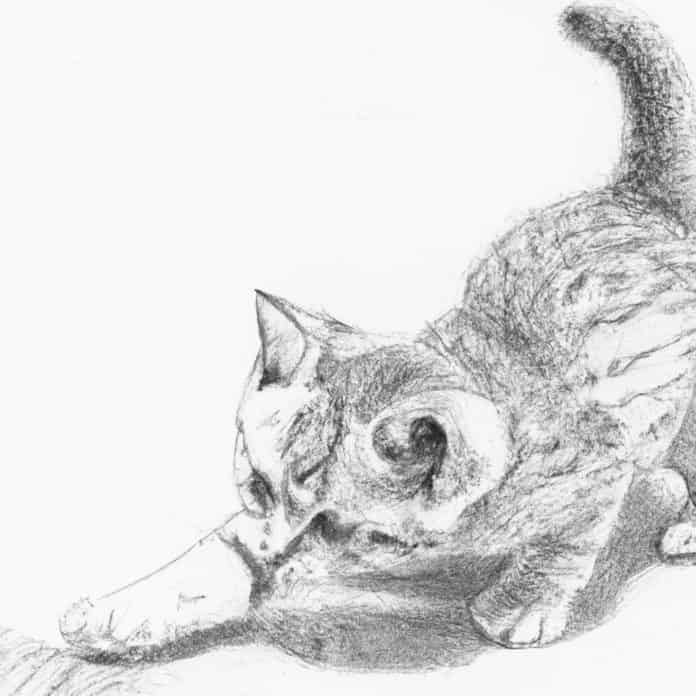Dear VetBabble,
I recently got a 5-week-old kitten and noticed that she has spastic movements in her extremities and hyperextends her neck muscles. She’s also unable to walk without stumbling. Is this a neurological issue, and what should I do to help her?
Understanding Feline Neurological Issues
It sounds like your kitten may be experiencing neurological problems based on your description of her symptoms. In such cases, it’s essential that you consult with a veterinarian to conduct a thorough examination, particularly a neurological exam, to determine the underlying cause. To ensure your kitten’s well-being, I’ll discuss some potential causes of her symptoms, the importance of early care and socialization, and how to provide her with the best possible environment for her growth and development.
Possible Causes and Veterinary Examination
Neurological disorders in cats are not uncommon and can sometimes appear early in a kitten’s life. There could be various reasons for your kitten’s condition, ranging from genetic abnormalities and infections to parasites or injury. Therefore, it’s vital to seek professional advice from a veterinarian to diagnose the problem and recommend appropriate treatment.
During the neurological examination, your vet will assess your kitten’s reflexes, balance, coordination, and muscle tone. They may also recommend additional tests, such as blood tests or x-rays, to determine the cause of her symptoms. Given your kitten’s age and condition, it’s especially crucial to address any health concerns as soon as possible to ensure her long-term well-being.
While seeking treatment and understanding the potential causes of neurological issues, it is also essential to learn about How to Care for a Kitten: Kitten Care Basics to provide her with the best care possible.
Early Care, Socialization, and a Healthy Environment
As a responsible pet owner, it’s important to give your kitten the best start in life while she’s under veterinary care for her neurological issues. This includes proper nutrition, a safe and comfortable environment, and regular check-ups with her vet. Following the principles of Exercise for Cats is essential for your kitten’s physical development.
However, don’t overlook the importance of Socializing Your Cat. Socialization refers to exposing your kitten to various experiences, people, and other animals to help her develop confidence and adaptability. Socialization is crucial for all kittens – especially those with additional challenges such as neurological disorders – as it helps them better navigate their surroundings and be more comfortable in different situations.
As your kitten experiences her world and interacts with others, she strengthens her mental, emotional, and physical well-being. This process includes introducing her to new toys, handling her gently, and letting her explore her environment at her own pace, all while closely monitoring her. Please remember to consult your vet before introducing any new exercises or activities that may affect your kitten’s condition.
Recognizing Physical Limitations and Providing Support
Lastly, it’s essential to remember that kittens with neurological disorders may have unique challenges and limitations. In addition to regular veterinary care, monitor your kitten’s behavior and abilities closely and be ready to adapt her environment as needed. For example, you may need to provide additional support for mobility or help her navigate different surfaces.
It’s also worth learning about conditions such as Arthritis in Cats to understand how you can better cater to your kitten’s needs and support her as she grows. Remember that patience, understanding, and a commitment to regularly checking her health will provide her with the best chance for a happy and fulfilling life.
In conclusion, consulting your veterinarian for a full examination and proper diagnosis of your kitten’s neurological issue is of the utmost importance. In addition to this, understanding her condition and adapting her environment based on her needs will be essential for her long-term well-being. As you embark on this journey of providing your kitten with the best possible care and support, always keep your vet informed about any changes in her behavior or condition so they can recommend adjustments to her treatment plan accordingly.









